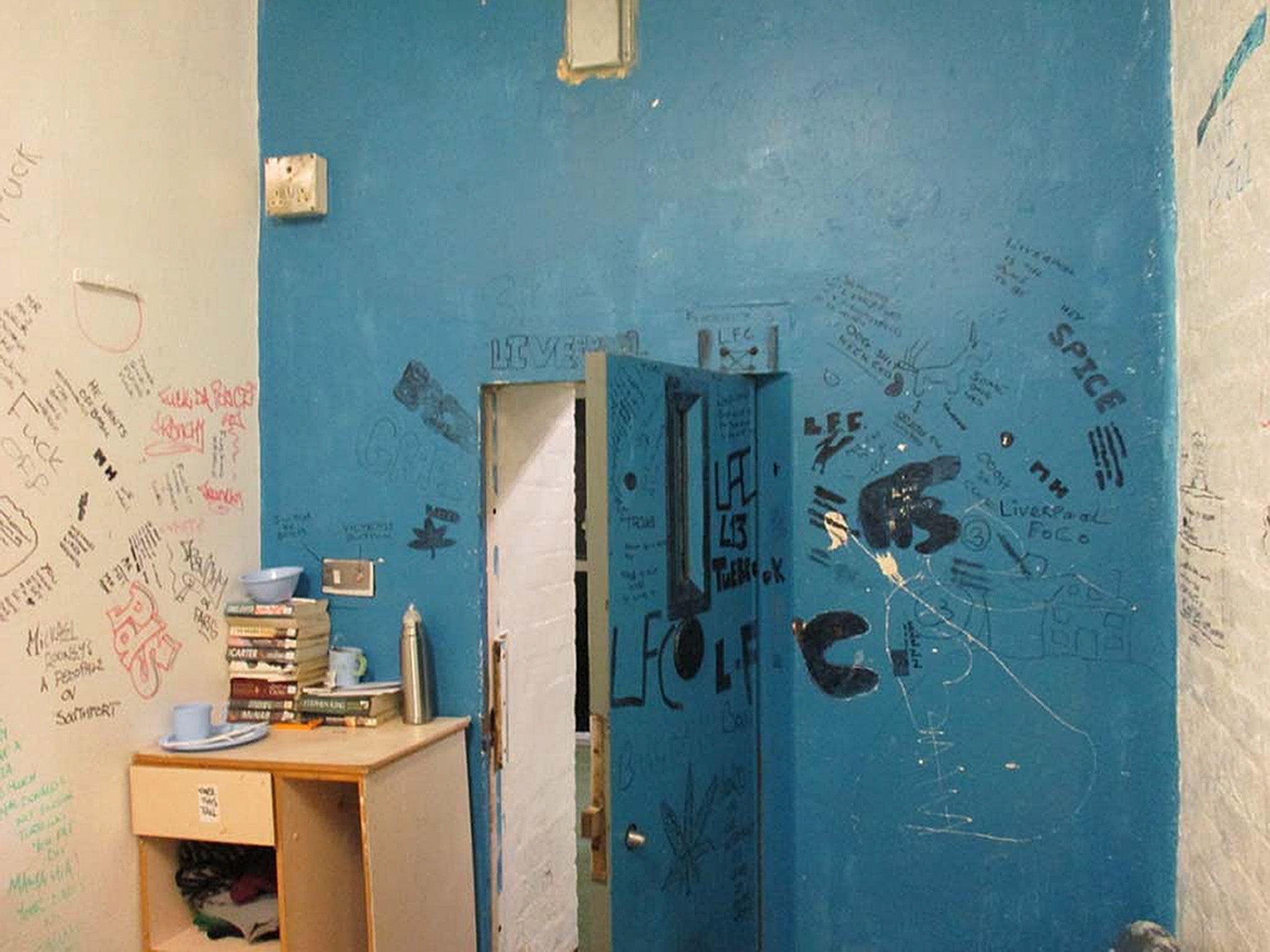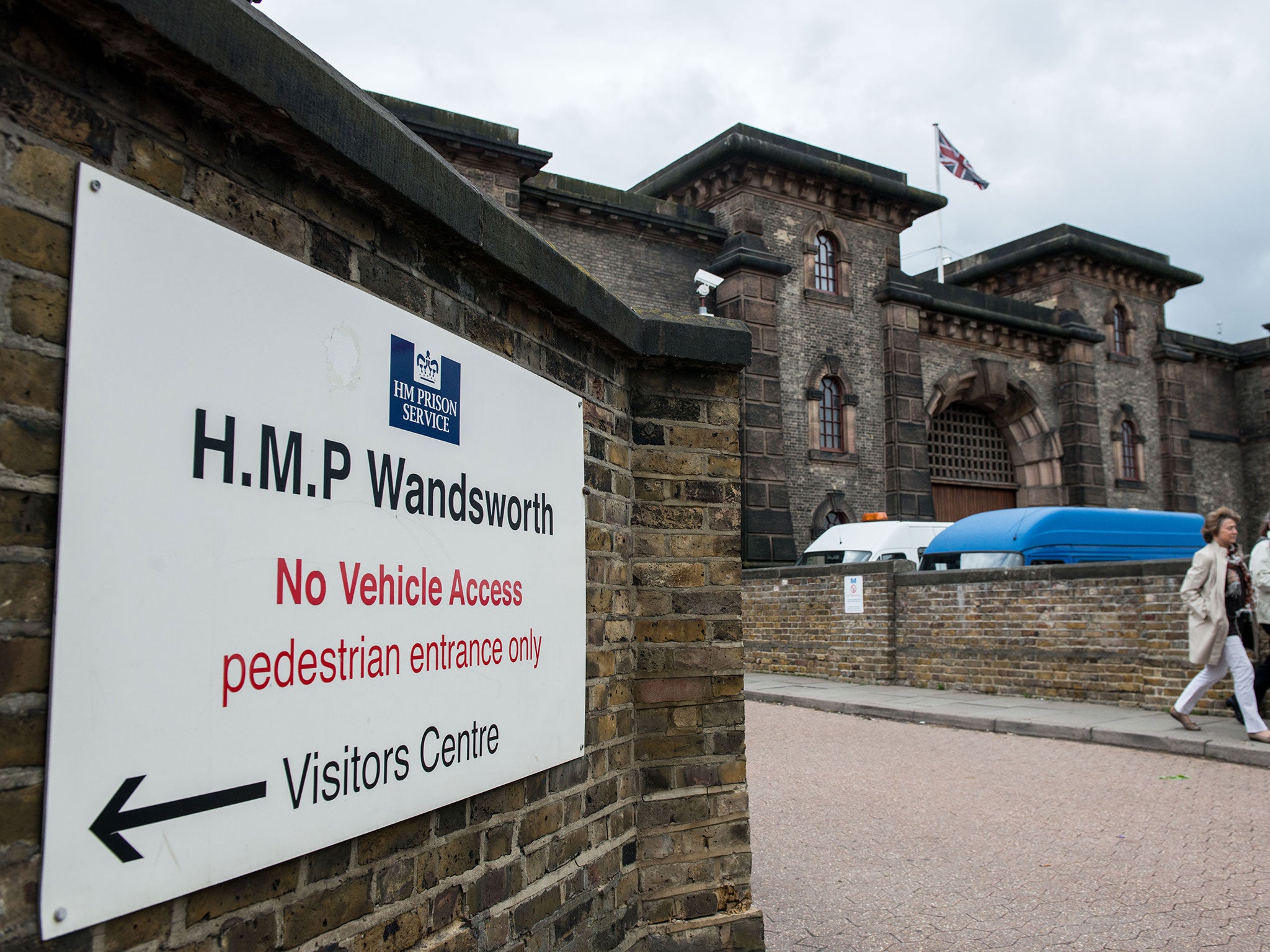Suicide of teenage inmate arrested for stealing sweets is warning of 'broken' prison system, campaigners say
Demand for action comes after another prisoner kills himself at HMP Liverpool

Your support helps us to tell the story
From reproductive rights to climate change to Big Tech, The Independent is on the ground when the story is developing. Whether it's investigating the financials of Elon Musk's pro-Trump PAC or producing our latest documentary, 'The A Word', which shines a light on the American women fighting for reproductive rights, we know how important it is to parse out the facts from the messaging.
At such a critical moment in US history, we need reporters on the ground. Your donation allows us to keep sending journalists to speak to both sides of the story.
The Independent is trusted by Americans across the entire political spectrum. And unlike many other quality news outlets, we choose not to lock Americans out of our reporting and analysis with paywalls. We believe quality journalism should be available to everyone, paid for by those who can afford it.
Your support makes all the difference.More teenagers will take their own lives in prison like Osvaldas Pagirys unless Britain’s “broken” system is fundamentally reformed, campaigners have warned.
The 18-year-old was arrested for stealing sweets and imprisoned at HMP Wandsworth pending deportation to Lithuania, after officials found him to be the subject of a European Arrest Warrant.
Mr Pagirys became suicidal over the four months, self-harming as he pleaded not to be sent away from his family living in Croydon.
He was found with ligatures around his neck five times but was left alone in a segregation unit on the day he died.
Mr Pagirys rang a bell in his cell at lunchtime on 11 November 2016 but it was not answered for 37 minutes – failure an inquest found contributed to his death.
Officers eventually arrived to find him hanging and he never regained consciousness, dying three days later.
A separate inquest exposed failings by prison staff after an inmate killed himself at HMP Liverpool – the third such death since a damning inspection in September.
Anthony Paine, 35, who was said to have severe mental health problems, was found in his cell and died in hospital on Monday.
Richard Burgon, the Shadow Justice Secretary, said a mounting mental health crisis in Britain’s prisons was not being addressed.

“Everyone has a right to proper mental health treatment but too many in our prisons are being let down by a broken system,” he told The Independent.
“With record levels of self-harm and suicides, combined with deep cuts to prisons budgets and ongoing understaffing, our prisons are clearly not equipped to treat people with mental health problems.
“The Government should take urgent action to tackle this crisis.”
Mr Burgon said reliable data on the number of prisoners with mental health problems must be collected as a first step, and called for a plan to end the shortage of mental health professionals in prisons.
Frances Crook, chief executive of the Howard League for Penal Reform, said Mr Pagirys’ death highlighted many of the worst failures of the prison system.
“Wandsworth is one of many prisons up and down the country that is being asked to look after too many people with too few staff,” she added.
“At the end of last month, this jail, designated to accommodate 845 men, was actually holding more than 1,400.
“It is shocking that frightened and vulnerable teenagers are still being held in such conditions.”
The Prison Reform Trust said the Government’s labelling of HMP Wandsworth – Britain’s biggest jail – as a “reform prison” where governors were handed control of budgets to make improvements had failed.

“It didn’t stop it from being grossly overcrowded, and therefore unable to provide decent care to the people living in it,” director Peter Dawson said.
“Much more fundamental change is needed to reduce our use of prison so that the risk of similar tragedies in future can be reduced.”
An investigation by the Prisons and Probation Ombudsman (PPO) described the case as “appalling” and concluded that Mr Pagirys’ life might well have been saved had staff responded sooner.
Noting that HMP Wandsworth had previously been criticised by prison inspectors for long delays in answering bells, investigators described mental health assessments as “woefully inadequate”.
Police had placed Mr Pagirys under constant supervision as a suicide risk but records in jail were incomplete and he started self-harming while displaying erratic emotional behaviour.
Officials repeatedly assessed Mr Pagirys as not suffering from significant mental health problems, despite interviewing him without an interpreter.
A jury returned a conclusion of accidental death on Tuesday but found that numerous failings by healthcare and prison staff contributed to the tragedy.
Jurors sitting at Westminster Coroner’s Court found staff should not have segregated Mr Pagirys, then failed to communicate with him or fellow officials, did not conduct a “timely” welfare check and “contributed to his death” by not responding to the emergency bell sooner.
His relatives said the provision of health and translation services were inadequate, adding that the governor who put Mr Pagirys into segregation was unaware he was found with a noose around his neck earlier that same day.
“There were repeatedly errors in the procedure for monitoring Osvaldas who was clearly at risk of self-harm,” a family statement added.
“Our hope is that Osvaldas’s death has made the management at HMP Wandsworth and the Ministry of Justice pay close attention to the management of those at risk of self-harm and ensure that there is adequate supervision of staff.”
He was among three Wandsworth inmates who died in 2016, with eight other men found hanging in the previous two years.
Michael Collins, from the campaign group Right to Remain, said Mr Pagirys should not have been jailed after his original arrest for shoplifting.
“We’ve come across similar cases before, like a couple of young guys from Poland, who were going to get deported for fairly minor things they had done when they were young,” he added.
“If Mr Pagirys wasn’t in a prison he would have been in an immigration detention centre, where a dozen people died last year.
“That young man should not have been locked up, it was quite obvious that he was at a very high risk.”
Undercover filming of guards abusing migrants at Brook House sparked calls for change last year but the UK remains the only EU country with no time limit on immigration detention.
Mr Collins said segregation units were being misused across both prisons and detention centres, and there was nothing to suggest significant improvements had been made since Mr Pagirys’ death.
Deborah Coles, director of Inquest, said the vulnerable teenager had been treated as a “discipline and control problem not only by the prison itself, but by the systems which needlessly sent him there”.
“It is simply not good enough for the prison and ministers to repeat the empty phrase that lessons will or have been learned. This death is a matter of national shame,” she added. “The response must be one which ensures there is accountability for those responsible, and lasting systemic change.”
Britain’s current system would violate new rules proposed by the United Nations, which said holding children in immigration detention must end.
“Detaining children, whether unaccompanied or on the basis of their or of their parents’ immigration status, is never in the best interests of the child and constitutes a violation of their rights,” said Renate Winter, chair of the UN Committee on the Rights of the Child.
“There can be no exceptions to this principle.”
Rory Stewart, a minister for prisons, said 11,000 staff had been given improved training to identify prisoners needing support.
“It is clear there were failings in how he was managed at HMP Wandsworth and these could have been avoided,” he added.
“The safety and welfare of people in our custody is my top priority and a significant amount of work has been done at the prison, including improving the monitoring of vulnerable offenders and response times when in-cell alarm bells are triggered.
“The prison has also made improvements that will allow staff to identify more quickly prisoners who require tailored support.
“Prison can be an extremely challenging experience for some and we are determined to reduce deaths and self-harm in our jails.”
To contact the Samaritans free of charge call 116 123; email jo@samaritans.org; or visit samaritans.org
Join our commenting forum
Join thought-provoking conversations, follow other Independent readers and see their replies
Comments